Click on an interview of interest. The tracks concerning 'Advantages of having diabetes.' will be highlighted in red on the following page.
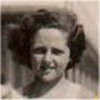 | Name: Ann
Overview: Ann came to England in 1945, and was diagnosed when the matron at her boarding school found her drinking the bath water. Her mother had worked as a nurse at Kings Hospital, London, and took her daughter there, to be treated by R.D. Lawrence (co-founder of the British Diabetes Association, now Diabetes UK). She has memories of being made to go into a hypo, of glass syringes, thick needles, and embarrassing urine tests. She worked as an occupational therapist, and brought up two children alone. Despite eyesight problems, she now makes a living as an artist.
Hits=3 |
|
|  | Name: Gillian
Overview: Gillian was diagnosed when she was 23, while working as a
journalist in London. At the age of 26, a consultant advised her that if she
wanted children, it would be a good idea to have them soon, because "you`ve
got to consider whether you`re going to see them grow up". Her partner
didn`t want to be a father at that stage, so she decided to be a single
parent and has brought up two children on her own. Her daughter was
diagnosed with diabetes in 1999.
There is also an interview with Gillian`s son, Tom.
Hits=2 |
|
| 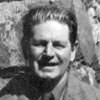 | Name: RD (Robin) Lawrence
Overview: RD Lawrence developed diabetes in 1921, during his surgical training at Kings College Hospital. Thinking he had not long to live, he chose to end his days quietly in Florence. Near death in 1923, he received a telegram, summoning him back to Kings, with the dramatic news that insulin had just become available and `it works`! He was appointed Biochemist at Kings that year and later ran the hospital`s diabetic department until he retired in 1957. He devised the influential Line-Ration Diet and his books The Diabetic Life (1925) and The Diabetic ABC (1929) were reprinted well into the 1960s.
Hits=1 |
|
| 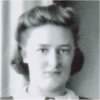 | Name: June
Overview: June`s husband, Charles, was diagnosed with diabetes at Barnstaple Hospital in 1935, when he was ten. After leaving hospital, he didn`t return for a check-up until 1957. He missed two years of school, as it was too far to walk and he had to look after his own injections, urine tests and diet, because his mother had seven other children. After June married Charles in 1946, his diabetes made little impact on their lives. He disliked blood testing and did urine tests until around 2004, when June did blood tests for him. June developed Type 2 diabetes twelve years ago.
Hits=1 |
|
| 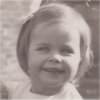 | Name: Joan B
Overview: Joan began to lose weight when she was three. Her doctor had never seen a child with diabetes and so failed to act until she was critically ill. When she recovered, she had to weigh every slice of bread, but was allowed extra wartime rations of cheese, meat and fish. She has been married to Clive since 1962 and has one son. She would like to have worked as a children`s nurse, but was advised that she wasn`t fit enough, and she was would like to have had more children, but had three miscarriages, which she attributes to diabetes.
There is also an interview with Joan`s husband, Clive.
Hits=1 |
|
| 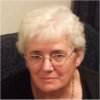 | Name: Lesley Prichards
Overview: Lesley`s daughter, Julie, was diagnosed with diabetes in 1978, aged nearly five, and she was in hospital for three weeks. Parents were not allowed to stay with their children, but Julie enjoyed hospital and decided then that she wanted to become a nurse. (She is now a Diabetes Research Nurse.) Meal times were rigid at first and Lesley and her husband still keep to those rigid times, though Julie does not. Later, while Julie was pregnant, she stayed with her parents whenever her husband worked nights - and Lesley feels that she`ll always have some involvement in her daughter`s diabetes.
Hits=1 |
|
|  | Name: Kushira Hackett
Overview: Kushira Hackett`s mother was white and her father black – from Guyana. Her parents split up when she was 5 and her mother later married a Jamaican. After diagnosis, the hospital staff explained to her mother about portions and gave her scales for weighing food, but gave no explanations to Kushira. Her mother also gave no explanations, and she thinks this led to her rebellion against diabetes, and to her leaving home aged 16. She had a period of homelessness, but later gained a law degree and now lives happily in Birmingham with her partner and two children.
Hits=1 |
|
| 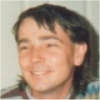 | Name: Philip Newick
Overview: Philip Newick comes from a working-class Bristol family which was greatly affected by redundancies in the aircraft industry. Determined to escape such insecurity, he did a degree and postgraduate work in chemical engineering. He worked for HJ Heinz until after diagnosis, when he was told that he could no longer work abroad. He then got a job nearer to his home in Birmingham and all his treatment has been in that city. He and his wife still weigh and measure all his food and he has few health problems - apart from an inability to detect the onset of hypos.
Hits=1 |
|
| 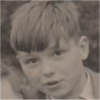 | Name: Leon Cowdery
Overview: When Leon Cowdery left school at 15, his diabetes barred him from his chosen profession of sign-writing because he was not allowed to go up a ladder. He worked as a cycle mechanic and then, in order to avoid going to his parents` Seventh-day Adventist church, he took up floor-laying at weekends. This led him into the building trade and he has been going up ladders ever since! He designed the house in which he lives and, now that he`s semi-retired, he helps his wife with gardening and maintains four motorbikes from the 1950s.
Hits=1 |
|
| 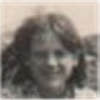 | Name: Mary
Overview: Mary`s father was a baker and her mother a factory worker. When she was diagnosed, the hospital suggested that they should buy a book on diabetes by R.D. Lawrence, but she doesn`t think they read it. She feels she was given very little information, and remembers thinking that her diabetes might disappear when she began to have periods at 15. She made little effort to control her diabetes until she went to a clinic in Oxford in 1983. She works as a podiatrist and reckons that about 75% of her patients have diabetes
Hits=1 |
|
| 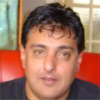 | Name: Mr. Baghria
Overview: Mr. Baghria`s parents are Sikhs who came from India in the 1950s; his father worked as a galvaniser in a factory. His parents` aim was that he should have a good education, but his own dream was to become a truck driver. He married young and he and his wife saved to buy his HGV licence. Not long afterwards, he was diagnosed with diabetes and his licence was revoked. He appealed and managed to get it back, on condition that he had a yearly medical - and he has been driving all over Europe ever since.
Hits=1 |
|
| 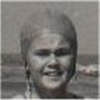 | Name: Victoria
Overview: Victoria`s father was a bank manager and she attended a private school and a grammar school. At 16, she developed an eating disorder after a boyfriend dropped her because she was diabetic, and at 25 she briefly rebelled against her diabetic diet. Otherwise, she feels diabetes has caused few problems and hasn`t prevented her from achieving her ambition of becoming a teacher. She thinks perhaps it did influence her not to have children, but she enjoys life with her partner, and is grateful for new blood testing equipment and other developments which have given diabetics greater freedom.
Hits=1 |
|
| 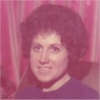 | Name: Shirley
Overview: Shirley left school at 16 and worked for the Inland Revenue until retirement. When she was diagnosed, her mother was very ashamed. Shirley looked after her parents until they died and then lived alone. She has had to cope alone with severe hypos, but says that living alone makes it easier to keep to a strict diet. She feels that her diet has made her healthier than she would have been if she hadn`t had diabetes. She has a low opinion of doctors, apart from a few consultants, but likes the group meetings held nowadays by specialist nurses.
Hits=1 |
|
| 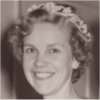 | Name: Olive
Overview: Olive married Gordon in 1956 and the following year he was diagnosed with Type 1 diabetes. He received good treatment at Kings College Hospital in London from R.D. Lawrence, who founded the British Diabetic Association, but with some younger doctors, he felt he was `imparting more information to them than they were giving back to him.` Gordon had several hypos and their daughter said she hated hearing him groan in the night, but Olive thinks that her children became more caring people as a result of their father`s diabetes and that the whole family benefited from having a healthy diet.
Hits=1 |
|
| | Search returned 17 matches |
|